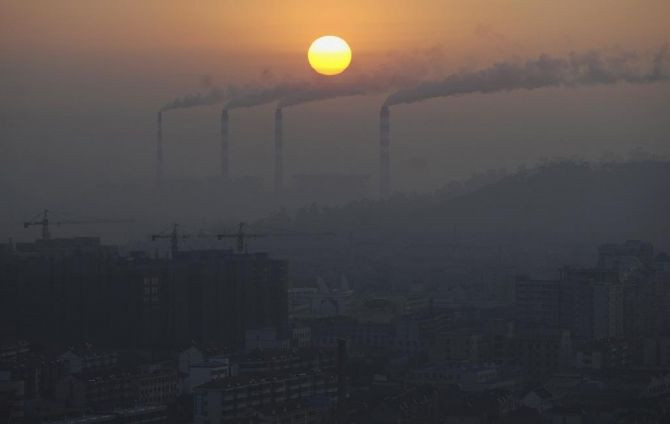China's Environment in Spotlight with New Tracking System

Researchers have introduced the first independent environmental performance measurement system for each province in China, but researchers have not yet produced a final index for each of the 31 provinces and municipalities.
Yale and Columbia University researchers said Thursday that China is confronting significant environmental challenge, and as the world’s most populous nation, and in recent controversies surrounding air quality, the country needs a way to accurately measure air quality.
“As the world’s most populous country and second largest economy, China is confronting significant environmental challenges across the board, from air and water quality to natural resource management, waste management, toxics exposure, biodiversity conservation, and greenhouse gas emissions,” said Douglas Kysar, interim director of the Yale Center for Environmental Law and Policy in a statement.
Air quality in the country’s capital has dominated headlines recently with many voicing public concern over hazardous air quality, and much of the debate originated from China’s government to release accurate air quality measurements and to allow public access to data.
“In this case, failure to measure fine particulate matter (PM 2.5) meant that the government missed critical air quality data that directly impacts the health of citizens. Independent measures of PM 2.5 by the US Embassy in Beijing indicated that the air quality was much worse than what the government was communicating,” said Marc Levy, deputy director of the Center for International Earth Science Information Network at Columbia University.
The study examined existing data, methodologies and policy targets for main environmental issues in China. Researchers found some important policy problems such as air pollution, water quality, climate change, energy efficiency and toxic metals.
“Filling the information gaps identified by this research project will enable policymakers to better spot problems, track trends, highlight policy successes and failures, identify best practices, and optimize the gains from investments in environmental protection,” said Angel Hsu, China EPI Project Director at the Yale School of Forestry and Environmental Studies.
Published by Medicaldaily.com



























